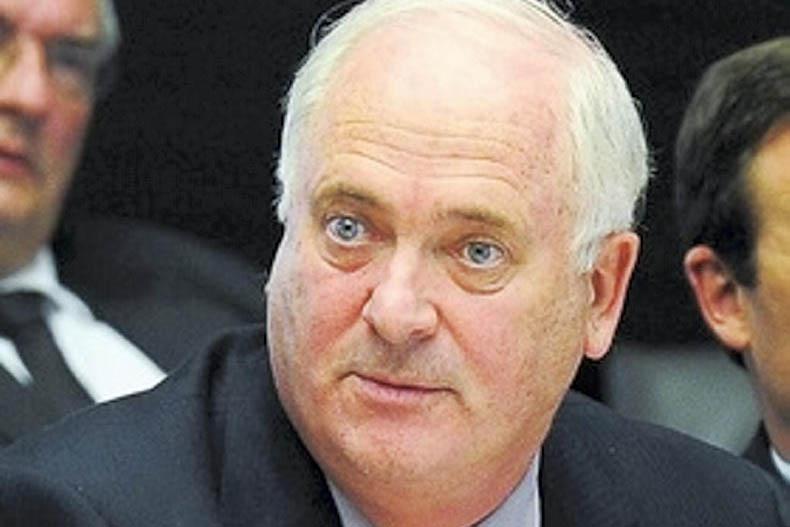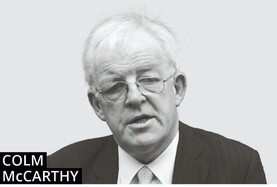An increase in the number of Liberal Democrats and Labour MPs in the House of Commons may strengthen the Parliamentary forces opposed to a hard Brexit.
The only gains achieved by the Conservatives were in Scotland, and the new Scottish Conservative MPs will be against a hard Brexit.
The Conservatives lost ground in London.
At least as many of the former UKIP voters switched to Labour as to the Conservatives. Brexit may have been the number one issue in the minds of those who did vote Tory, but for Labour voters the big issues were opposition to austerity, care for the elderly and student fees.
Labour’s promise to scrap university tuition fees was given as the single biggest reason (35%) to vote Labour while the Conservatives’ “dementia tax” was the single biggest reason (27%) cited for not voting for Conservatives.
Bread and butter issues and public services were at the forefront of people’s minds, not Brexit
Prime minister Theresa May’s nationalistic message in favour of a hard Brexit had limited appeal. Even former UKIP leader and Brexit campaginer Nigel Farage has acknowledged that the hardest form of Brexit is now improbable and has cited the Norwegian model as the most likely.
The EU has never been a really big issue for the British public and Brexit was primarily a scapegoat for other things, namely an over-centralised British state and a profoundly unrepresentative parliamentary system.
Brussels blame
The Conservatives were blaming Brussels over-centralisation while intending to centralise the UK state itself further.
UK voters know little about how the EU works, which explains their gullibility in the referendum last year.
Labour succeeded in getting election debate onto austerity/public services/welfare state issues and May’s hard Brexit line demonstrably engaged less with the public.
The public is tired of austerity, and consumer confidence has waned.
The fall in the value of sterling has reduced purchasing power and this is directly linked to the decision to leave the EU.
Under proportional representation, with the same people voting the same way they did, the result of the UK general election would have been a broad left coalition, not a Conservative government reliant on Democratic Unionist support.
This outcome would have been more difficult if the Sinn Féin MPs took their seats.
With the DUP in power in Westminster, direct rule has become much less attractive. So it is now in Sinn Fein’s interests to get the Stormont institutions up and running again, as quickly as possible, even if that means taking difficult decisions.
Indeed, the decision of Northern nationalist voters to switch their votes for the SDLP to Sinn Féin was an act of self-harm, of a kind not dissimilar to that which the Conservatives inflicted on themselves by calling the general election.
On a turnout of 68.7%, the Conservatives secured 42% of the vote, Labour 40% (up from 30% in 2015).
Disproportionate
The Liberal Democrats gained more MPs, but their share of the vote fell slightly to 7.4%. Liberal Democrats have 12 MPs with 2.4m votes but the DUP (the Tories’ new ally) have 10 MPs with only 300,000 votes. This is not proportional representation.
The election result strengthens parliament and weakens political parties.
Theresa May overruled the House of Lords on Brexit in the last parliament.
They will now have far more confidence and may vote down a lot of legislation, forcing the Commons to think again.
The tiny majority will make life very difficult for the Conservative and DUP MPs, especially the latter who will have to spend a lot more time in London, far from their constituencies.
Pairing arrangements may not always be easily agreed. If pairing is dropped, all Conservative MPs, including ministers, will have to be present to vote, as they must assume their Labour pairs will vote.
The byelection blues
The government will get very tired. The Conservative Party - inside Parliament and out - will probably become more ill-tempered and demoralised.
When Labour was in a minority government in the 1970s, the Conservatives were ruthless in pressing for all-night sittings etc.
MPs died and byelections had to be called. In the 1974 to 1979 Parliament, there were 30 byelections, mostly arising from the death of MPs and most of those deaths were in the governing party. Byelections in this parliament will matter. If they go against the Conservative/ DUP coalition, their majority could disappear within the next 12 months.
Northern Ireland produced a very polarised result with the two extremes, the DUP and Sinn Féin, leading. The DUP had 36% of the vote (10 MPs), Sinn Féin 29.4% (seven MPs) with the two traditional parties, the official Unionists and SDLP, between them getting 22% and no MPs at all.
Agriculture will be the subject to watch in any DUP-Conservative deal.
How will the incomes of farmers in Northern Ireland be protected and how will freedom of access for Northern Irish food products to the EU market south of the border be preserved?
Given the commercial interest many Democratic Unionist supporters have in trade across the border in Ireland, the Conservative Party may have to drop its insistence on leaving the EU Customs Union to avoid the necessity of extensive and time-consuming checking of goods crossing the border.
Trade
As a unionist party, the DUP will favour UK-wide solutions rather than a special deal for Northern Ireland alone, and this may help ease the impact of Brexit on east-west trade between Ireland and Britain as well. That would be welcome.
If it were to decide to stay in the Customs Union, the UK could, of course, not do trade deals of its own. But that may not be such a great loss.
There was little evidence that the deals UK could do, outside the customs union, would compensate it for the deals it would lose by leaving it. By leaving the EU, the UK would lose 295 trade deals and 202 deals on regulatory cooperation.
I hope the people of the UK will now, at last, have the sort of honest, detailed, sector-by-sector, debate on what Brexit might mean, a debate that they so markedly failed to have during the general election campaign.
Read more
Gove appointed environment and food secretary for the UK
Full coverage
An increase in the number of Liberal Democrats and Labour MPs in the House of Commons may strengthen the Parliamentary forces opposed to a hard Brexit.
The only gains achieved by the Conservatives were in Scotland, and the new Scottish Conservative MPs will be against a hard Brexit.
The Conservatives lost ground in London.
At least as many of the former UKIP voters switched to Labour as to the Conservatives. Brexit may have been the number one issue in the minds of those who did vote Tory, but for Labour voters the big issues were opposition to austerity, care for the elderly and student fees.
Labour’s promise to scrap university tuition fees was given as the single biggest reason (35%) to vote Labour while the Conservatives’ “dementia tax” was the single biggest reason (27%) cited for not voting for Conservatives.
Bread and butter issues and public services were at the forefront of people’s minds, not Brexit
Prime minister Theresa May’s nationalistic message in favour of a hard Brexit had limited appeal. Even former UKIP leader and Brexit campaginer Nigel Farage has acknowledged that the hardest form of Brexit is now improbable and has cited the Norwegian model as the most likely.
The EU has never been a really big issue for the British public and Brexit was primarily a scapegoat for other things, namely an over-centralised British state and a profoundly unrepresentative parliamentary system.
Brussels blame
The Conservatives were blaming Brussels over-centralisation while intending to centralise the UK state itself further.
UK voters know little about how the EU works, which explains their gullibility in the referendum last year.
Labour succeeded in getting election debate onto austerity/public services/welfare state issues and May’s hard Brexit line demonstrably engaged less with the public.
The public is tired of austerity, and consumer confidence has waned.
The fall in the value of sterling has reduced purchasing power and this is directly linked to the decision to leave the EU.
Under proportional representation, with the same people voting the same way they did, the result of the UK general election would have been a broad left coalition, not a Conservative government reliant on Democratic Unionist support.
This outcome would have been more difficult if the Sinn Féin MPs took their seats.
With the DUP in power in Westminster, direct rule has become much less attractive. So it is now in Sinn Fein’s interests to get the Stormont institutions up and running again, as quickly as possible, even if that means taking difficult decisions.
Indeed, the decision of Northern nationalist voters to switch their votes for the SDLP to Sinn Féin was an act of self-harm, of a kind not dissimilar to that which the Conservatives inflicted on themselves by calling the general election.
On a turnout of 68.7%, the Conservatives secured 42% of the vote, Labour 40% (up from 30% in 2015).
Disproportionate
The Liberal Democrats gained more MPs, but their share of the vote fell slightly to 7.4%. Liberal Democrats have 12 MPs with 2.4m votes but the DUP (the Tories’ new ally) have 10 MPs with only 300,000 votes. This is not proportional representation.
The election result strengthens parliament and weakens political parties.
Theresa May overruled the House of Lords on Brexit in the last parliament.
They will now have far more confidence and may vote down a lot of legislation, forcing the Commons to think again.
The tiny majority will make life very difficult for the Conservative and DUP MPs, especially the latter who will have to spend a lot more time in London, far from their constituencies.
Pairing arrangements may not always be easily agreed. If pairing is dropped, all Conservative MPs, including ministers, will have to be present to vote, as they must assume their Labour pairs will vote.
The byelection blues
The government will get very tired. The Conservative Party - inside Parliament and out - will probably become more ill-tempered and demoralised.
When Labour was in a minority government in the 1970s, the Conservatives were ruthless in pressing for all-night sittings etc.
MPs died and byelections had to be called. In the 1974 to 1979 Parliament, there were 30 byelections, mostly arising from the death of MPs and most of those deaths were in the governing party. Byelections in this parliament will matter. If they go against the Conservative/ DUP coalition, their majority could disappear within the next 12 months.
Northern Ireland produced a very polarised result with the two extremes, the DUP and Sinn Féin, leading. The DUP had 36% of the vote (10 MPs), Sinn Féin 29.4% (seven MPs) with the two traditional parties, the official Unionists and SDLP, between them getting 22% and no MPs at all.
Agriculture will be the subject to watch in any DUP-Conservative deal.
How will the incomes of farmers in Northern Ireland be protected and how will freedom of access for Northern Irish food products to the EU market south of the border be preserved?
Given the commercial interest many Democratic Unionist supporters have in trade across the border in Ireland, the Conservative Party may have to drop its insistence on leaving the EU Customs Union to avoid the necessity of extensive and time-consuming checking of goods crossing the border.
Trade
As a unionist party, the DUP will favour UK-wide solutions rather than a special deal for Northern Ireland alone, and this may help ease the impact of Brexit on east-west trade between Ireland and Britain as well. That would be welcome.
If it were to decide to stay in the Customs Union, the UK could, of course, not do trade deals of its own. But that may not be such a great loss.
There was little evidence that the deals UK could do, outside the customs union, would compensate it for the deals it would lose by leaving it. By leaving the EU, the UK would lose 295 trade deals and 202 deals on regulatory cooperation.
I hope the people of the UK will now, at last, have the sort of honest, detailed, sector-by-sector, debate on what Brexit might mean, a debate that they so markedly failed to have during the general election campaign.
Read more
Gove appointed environment and food secretary for the UK
Full coverage






 This is a subscriber-only article
This is a subscriber-only article










SHARING OPTIONS: